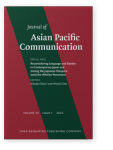A cure for woundless pain
Consumption of innocence in Japanese idol culture
As a cultural construct, the idol is a consumer product created to “heal” in the age of exhaustion. Layering a
“guardian” aspect onto Laura Mulvey’s “male gaze,” this paper contextualizes the commodification and consumption of innocence.
This paper brings the documentary, Tokyo Idols (2017), and the animated film, Perfect Blue
(1997), into a conversation to theorize how femininity is constructed and commodified in Japan’s pop idol industry. The idol
culture consumes innocence only to create more trauma for women by stressing the arbitrary importance of innocence and sacrificing
female agency in the process.
Article outline
- Male fantasy and patriarchal subconscious
- Innocent construct
- The guardian gaze
- Imposed trauma narrative and the mirror stage
- Conclusion
- Conflict of interest
- Acknowledgements
-
References
References (23)
References
Aoyagi, H. (2005). Islands
of Eight Million Smiles: Idol Performance and Symbolic Production in Contemporary
Japan. Cambridge: Harvard University Asia Center. 

Bareket, O., Kahalobn, R., Shnabel, N., & Glick, P. (2018). The
Madonna-Whore Dichotomy: Men Who Perceive Women’s Nurturance and Sexuality as Mutually Exclusive Endorse Patriarchy and Show
Lower Relationship Satisfaction. Sex
Roles, 79(9), 519–532. 

BBC World
Asia. (2013, 02 01). ‘Sorry’ Japan starlet
shaves head. BBC World Asia. [URL]
Brasor, P. (2015, September 26). Working
the politics of an idol marriage. Retrieved from The Japan Times: [URL]
Galbraith, P. (2012). Idols:
The Image of Desire in Japanese Consumer Capitalism. In P. W. Galbraith, & J. Karlin, Idols
and Celebrities in Japanese Media
Culture (p. 255). Tokyo, Japan: CPI Antony Rowe. 

Galbraith, P. G., & Karlin, G. J. (2020). AKB48. New York, USA; London, UK: Bloomsbury Publishing.
Galbraith, P. W., & Karlin, J. G. (2012). Introduction:
The Mirror of Idols and Celebrity. In P. W. Galbraith, & J. G. Karlin, Idols
and Celebrity in Japanese Media
Culture (pp. 1–34). New York: PALGRAVE MACMILLAN. 

Han, B.-C. (2017). In
The Swarm: Digital Prospects. (E. Butler, Trans.) Cambridge, Massachusetts, USA: The MIT Press. 

Han, B. (2017). Psychopolitics:
Neoliberalism and New Technologies of Power. New York: Verso. 

Ide, W. (2017). Tokyo
Idols’: Sundance Review. Screen
International, 1–3.
Koch, G. (2016). Producing
iyashi: Healing and labor in Tokyo’s sex industry. American
Ethnologist, 43(4), 704–716. 

Kon, S. (Director). (1997). Perfect
Blue [FILM]. Madhouse.
Kon, S. (2000). Perfect
Blue: Interview with Director Satoshi Kon. (M. Entertainment, Interviewer)
Lacan, J. (1986). The
Mirror Stage as Formative of the Function of the I as Revealed in Psychoanalytic
Experience. In J. Lacan, Critical
Theory Since 1965 (First Edition
ed., pp. 734–738). Tallahassee: University Press of Florida.
LaMarre, T. (2006). Platonic
Sex: Perversion and Shojo Anime. Animation: An Interdisciplinary
Journal, 1(1), 45–59. 

Lukács, G. (2010). Scripted
Affects, Branded Selves: Television, Subjectivity, and Capitalism in 1990s
Japan. Durham: Duke University Press Books.
Michel, P. S. (2019, September 16). SMAP:
The pop idol media monopoly that dominated the Heisei Era. The Japan Times: Culture. [URL]
Miyake, K. (Director). (2017). Tokyo
Idols [Documentary]. Netflix.
Mulvey, L. (1975). Visual
Pleasure and Narrative
Cinema. Screen, 16(3), 6–18. 

Nagano, H. (2011). Collective
Maturation: The Construction of Masculinity in Early Modern
Villages. In S. Frühstück, & A. Walthall, Recreating
Japanese
Men (pp. 203–219). Berkeley and Los Angeles, California: University of California Press.
Napier, S. (2006). “Excuse
Me, Who Are You?”: Performance, the Gaze, and the Female in the Works of Kon
Satoshi. In S. Brown, Cinema
Anime (pp. 23–42). New York: PALGRAVE MACMILLAN. 

Treat, J. W. (2018). Japan
is interesting: modern Japanese literary studies today. Japan
Forum, 30(3), 421–440. 

Ueno, C. (2010). Onna-girai:
Nippon no Misojini. Tokyo: Kinokuniya Shoten.
Cited by (1)
Cited by one other publication
Correa-Blázquez, Magdalena
2024.
Femininity as a virtual object. Interacting with the Japanese girl-machines: Shiori, Monika, Miku, and Kizuna.
Teknokultura. Revista de Cultura Digital y Movimientos Sociales 21:1
► pp. 119 ff.

This list is based on CrossRef data as of 4 july 2024. Please note that it may not be complete. Sources presented here have been supplied by the respective publishers.
Any errors therein should be reported to them.
